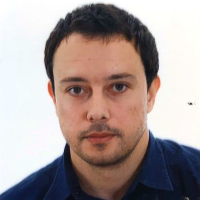Original title of the project (in Polish):
Rozumowanie w egzegezie biblijnej: od Stefana Langtona do Tomasza z Akwinu
Years:
2021-2024
Granting institution:
National Science Centre
Programme:
SONATA-16
Project Description:
The aim of the project is to examine the nature of reasoning in biblical exegesis (hereinafter: BE) in the period from the end of the 12th to the middle of the 13th century. The research will consider various aspects of reasonings present in the exegetical texts of some of the most important thinkers of that time, including their methodological approaches, as well as the possible evolution of strategies adopted in this context.
Many studies on the development of logic in this period have already been written. However, research to date has focused primarily on the texts that originate in the faculty of the Artes, such as commentaries on the logical works of Aristotle or on speculative theology. Very few studies concern the use of logic in exegetical production, despite the fact that the analytical attitude of the scholastic thinkers finds there its natural destination. Analyzing the reasoning in the BE of this period will restore balance to the intellectual image of the era.
The following general hypotheses will be examined: 1) biblical exegesis of the analytically oriented theologians of above-mentioned period contain various reasonings which reveal their mastery of logic and methodological awareness; 2) using logically perfect reasonings in biblical exegesis significantly changes its status, making it to some extent “scientific”.
This study will be based on at least 50 reasonings from the sample selected from the source material. The analysis of these reasonings will be conducted by means of a special questionnaire. This questionnaire will be employed to precisely examine each reasoning by analyzing its structure, status, use of logical tools, context, role, methodological assumptions, etc., and thus to create material for comaparisons and generalisations aimed at answering the proposed research questions.
Team:
 | Co-investigator: Dr. Andrea Nannini – senior researcher at the Faculty of Philosophy of the University of Warsaw, specialised in medieval philosophy and theology. |
 | Co-investigator: Dr. Marcin Będkowski – assistant professor at the Department of Computational Linguistics of the Institute of Polish Language at the University of Warsaw, and senior expert at the Educational Research Institute, specialised in argumentation theory, critical thinking, and data science. |
 | Copy-editor: Ewa Balcerzyk-Atys – English-language copy editor, coordinator of journals platforms, expert in publishing. |
 | Head (principal investigator): Dr. Marcin Trepczyński – assistant professor at the Faculty of Philosophy of the University of Warsaw, specialised in medieval philosophy, including logic and methodology of science, as well as the relationships between logic and religion. He was an expert of the Education Research Institute, specialised in learning outcomes assessment. He is a member the management board of the Logic and Religion Association. Publications: ORCID | Academia.edu |
Project publications:
- Trepczyński M. 2021. Doktrynalny wymiar Hexaëmeronu Roberta Grosseteste, Edukacja Filozoficzna 2(72)/2021, 277-296, DOI: https://doi.org/10.14394/edufil.2021.0023.
- Nannini A., Trepczyński M. 2022. “In principio”: The Metaphysical Exegesis of John 1:1 by Albert the Great, Bonaventure and Thomas Aquinas. Biblica et Patristica Thoruniensia, vol. 15, no. 2, 41–54. DOI: https://doi.org/10.12775/BPTh.2022.009.
- Trepczyński M. 2022. Non-Monotonic Reasoning in Medieval Theology: Problems and Assumptions, Studia Humana 3-4(11), 53-66. DOI: https://doi.org/10.2478/sh-2022-0016.
- Trepczyński M., Będkowski M. 2024, Czeżowski’s Theory of Reasoning and Mediaeval Biblical Exegesis, History and Philosophy of Logic 45(2), 196–218. DOI: https://doi.org/10.1080/01445340.2024.2310454.
